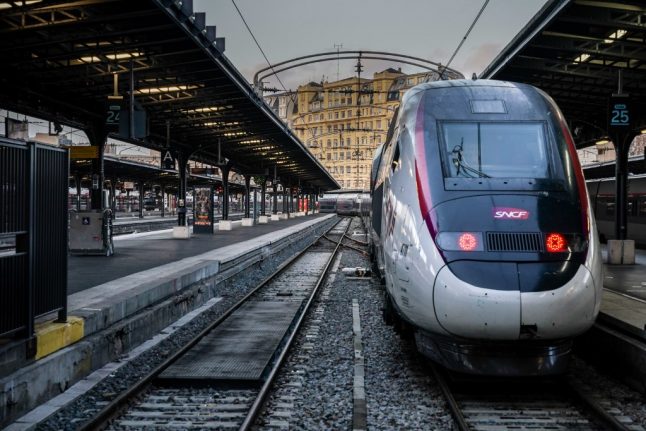French rail operator SNCF announced on Friday that only around 50-60 percent of high-speed TGV trains will run this weekend from Friday December 20th to Sunday 22nd.
SNCF said they were expecting to transport around 850,000 people around France this weekend on TGV trains – some 53 percent of those who initially booked tickets.
READ ALSO Unions threaten power cuts across France as strikes continue
The weekend marks the start of the school holidays when many families in France were due to head away for Christmas week.
Holidaymakers and workers in France's main cities who also head away en masse for the winter break had hoped the unions, striking against pension reforms, would announce a winter truce to allow train services to return to normal.
“There have been no Christmas truces declared,” said the SNCF's Rachel Picard on Tuesday. She said she expected between 60 and 70 percent of SNCF trains drivers to be on strike over the weekend.
Tuesday was considered the last day for the unions to call a truce to allow services to return to normal before Christmas, however barring an 11th-hour change of heart by the unions the strikes look set to go on.
Unions were clear where they think the blame lied for the Christmas travel misery.
“Nobody wants to mess up Christmas, not the strikers nor workers nor the French who want to be with their families,” Laurent Escure of the UNSA union told France 2 television.
“But this is entirely the government's fault.”
The government too shows no sign of backtracking with Prime Minister Edouard Philippe saying on Tuesday ministers were “determined” to push ahead with an overhaul of France's pension system.
The two sides will meet for more talks on Wednesday.
“My determination, and that of the government and the majority, is total,” Philippe told parliament, as tens of thousands took to the streets to march against plans to create a unified pension system.
In some good news for passengers SNCF said they would be able to guarantee that almost all low-cost Ouigo trains.
Those due to travel on December 23rd or over Christmas will have to wait to see how their trains are affected with SNCF due to make further announcements of travel plans on Thursday.



 Please whitelist us to continue reading.
Please whitelist us to continue reading.
Member comments